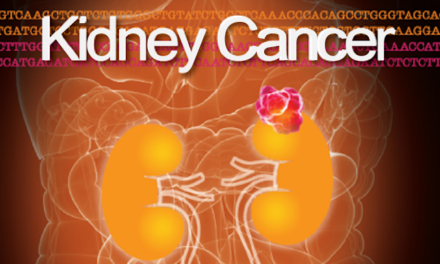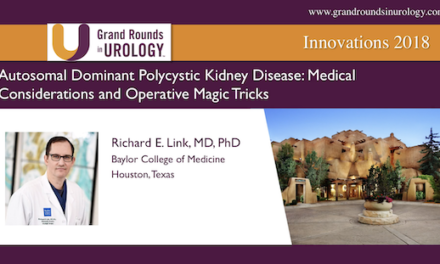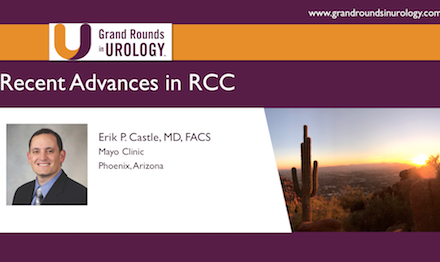
Integrated biomarker analysis for 412 renal cell cancer (RCC) patients (pts) treated on the phase 3 COMPARZ trial: Correlating common mutation events in PBRM1 and BAP1 with angiogenesis expression signatures and outcomes on tyrosine kinase inhibitor (TKI)
Abstract
In RCC biology mutations in PBRM1 and BAP1are largely non-overlapping and collectively affect >50% of pts. How and through which mechanism they influence disease kinetics is poorly understood. Sunitinib and pazopanib inhibit angiogenesis, a key driver in RCC. We analyzed mutation status and gene expression signatures in a large cohort of pts receiving first-line sunitinib or pazopanib on the COMPARZ trial
RNA and DNA were extracted from archival tissue. PBRM1 and BAP1mutation status was determined via a custom exon-targeted platform. Transcriptome analysis was done using Affymetrix Gene Chip HTA 2.0. We computed a 43 gene angiogenesis expression score with previously reported dynamic response to VEGF-directed therapy in xenograft models (Masiero, Cancer Cell 2013). DNA and RNA findings were correlated with clinical outcomes using parametric and non-parametric tests
412 pts contributed tumor RNA, 377 pts DNA; 362 pts both. PBRM1 and BAP1 were mutated (MT) in 44% and 15% of pts, respectively. Presence of PBRM1mutations correlated with superior PFS (p=0.008) and OS (p=0.004) on log-rank test, and PBRM1 mutation rate was higher in pts with objective response than those with progression (Fisher’s Exact, p=0.012). In contrast, pts with MT BAP1 had inferior OS compared to those whose were wild type (WT) (log-rank, p=0.012). Across all 412 pts angiogenesis score associated favorably with outcome on uni and multivariate analyses (Cox proportional hazard regression, OS p<0.001 and PFS p<0.005); scores were higher in 123 pts with objective response than 81 pts with progression as best response (Mann-Whitney, p=0.009). Angiogenesis scores were higher in PBRM1 MT vs WT patients (Mann-Whitney, p<0.001), but lower in BAP1 MT vs WT patients (p<0.001)
PBRM1 and BAP1 mutations appear to have opposite effects in advanced RCC. Loss of PBRM1 enhances the pro-angiogenic microenvironment of RCC with favorable effects on response to TKI; BAP1 loss associates with decreased angiogenic signaling and adverse outcome to TKI. Clinical trial information: NCT00720941
Authors: Martin Henner Voss | Fengshen Kuo | Mahtab Marker | Yuan Cheng | Parul Patel | Almedina Redzematovic | Nadeem Riaz | Timothy A. Chan | Toni K. Choueiri | James Hsieh | Robert J. Motzer | A. Ari Hakimi
Journal: Kidney Cancer, vol. 2, no. s1, pp. I-S50, 2018




